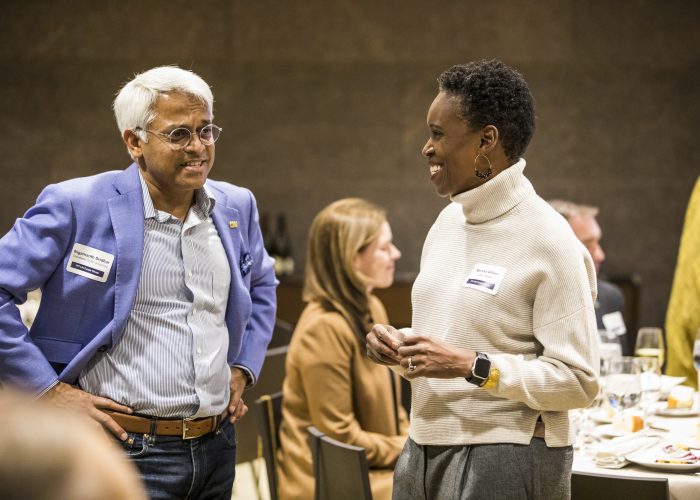
Regional Hubs &
Working Groups
PIT-UN Regional Hubs provide a framework for synergistic programming in higher education and workforce development in Public Interest Technology. Hubs focus on inter-institutional efforts to accelerate the development and institutionalization of PIT; provide expertise, experience and training to the regional workforce; and developing ecosystems in which each institution can expand the impact of their own efforts.
PIT-UN Working Groups explore key issues in building public interest technology as an academic discipline, offering recommendations, activities, tools, strategies, policy proposals, and research papers for PIT-UN members to adopt or review.
A working group is tasked for a period of 12 months and can begin in the first month of a quarter (January, April, July or October).
Individuals from any PIT-UN member institution can participate, and must commit to participation for the full 12 months.
PIT @ NSF
Staffed by Alberto Rodriguez-Alvarez (PIT-UN).
To learn more or join PIT @ NSF,
email rodriguezalvarez@newamerica.org.
PIT and AI Policy
Led by Margaret Hu (William & Mary Law School)
To learn more or join PIT and AI Policy,
email rodriguezalvarez@newamerica.org.
Regional Hubs
Midwest
Lisa Frazier (The Ohio State University)
PIT-UN Members Case Western Reserve University, Carnegie Mellon University, Cleveland State University, Illinois Institute of Technology, Missouri Institute of Science & Technology, Penn State University, Prairie View A&M University, Temple University, The Ohio State University, University of Chicago, University of Indiana, University of Illinois-Chicago, University of Michigan, University of Pennsylvania, University of Texas at Austin, West Virginia University
PIT New England
Colette Basiliere (UMass Amherst)
PIT-UN Members Boston University, Brown University, Franklin Olin College of Engineering, Harvard University, Massachusetts Institute of Technology, Northeastern University, UMass Amherst, Worcester Polytechnic Institute
Non PIT-UN Members Benjamin Franklin Cummings Institute of Technology, Equity and Access in Algorithms, Mechanisms, and Optimization (EAAMO), Emerson College, Project Evident, Smith College, Tufts University, UMass-Boston, Wellesley College
HBCUs South
Kevin Harris (Stillman College)
Zina Parker (LeMoyne-Owen College)
PIT-UN Members Howard University, Lane College, LeMoyne-Owen College, Meharry Medical College, Prairie View A&M University, Stillman College
Global
Brian Gran (Case Western Reserve University)
PIT-UN Members Arizona State University, California Polytechnic State University, Case Western Reserve University, Center for Education and Research on Innovation (CEPI FGV São Paulo Law School), Columbia University, George Washington University, University of Arizona, University of Edinburgh, University of Rijeka, University of Szeged, The University of Texas at Austin
Non PIT-UN Members PIT Policy Lab, Universidad de Concepción
Past Working Groups
Public Engagement via Wikipedia
Chaired by Brenda Perea (PITUN).
Career Pipeline & Placement
DEI in Cybersecurity
Chaired by Kevin Harris (Stillman College)
and Ann Cleveland (University of California - Berkeley).
Faculty & Institution Building
The Elements of a Working Group
- Working Groups shall determine their own meeting schedule. It is suggested that meetings take place at least monthly.
- Working Groups shall document their meetings and processes. It is suggested that the role of note taker be rotated at every meeting.
- Working Groups shall provide New America staff with draft outlines of any potential outputs before the output is created.
- Working Groups are required to propose an actionable item or activity as a product of their 12-month process.
- New America will aim to provide ongoing support for the Working Groups.
- For reports and policies, Working Groups shall, in coordination with New America, run a two-week comment period among PIT-UN members.
- During this comment period, the Working Group will provide its document to members for review (Sample Comment Document for PIT-UN member circulation). The Working Group will have an additional two weeks to address any suggested edits.
- Outputs of all Working Groups must be approved by New America prior to publication and dissemination. New America will determine what, if any, PIT-UN communication resources will be deployed in support of the output.
- A chair and co-chair must be identified and committed to leading the Working Group.
- The chair and co-chair must complete sections I-V of the PIT-UN Working Group Formation Request form.
- The charter shall then be provided to New America for review, comments, and edits.
- The chair and co-chair shall address any edits and resubmit the charter to New America.
- If appropriate, New America shall approve the new Working Group Charter.
- After receiving approval, the Working Group chair and co-chair can, in coordination with New America staff, invite and accept additional members to join the Working Group. Potential members can be invited by the Working Group chair or co-chair, New America staff, or PIT-UN members. Faculty members of PIT-UN member institutions may also self-nominate by contacting New America staff.
- Working Groups can begin at any time of the year and shall have a duration of one year.
- Each Working Group must have a chair and co-chair to steer the Working Group toward agreed-upon outputs.
- The committee chair or co-chair must be a PIT-UN member or co-members.
- Any faculty member affiliated with a PIT-UN member institution may participate in a Working Group.
- Although Working Groups can partner with or seek input from nonacademic entities, such as nonprofits, government organizations, or corporations, all Working Group members must be affiliated with a PIT-UN member academic institution and must commit for the entire year.
- Working Group membership shall be capped at 20 people.
